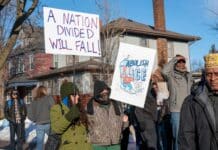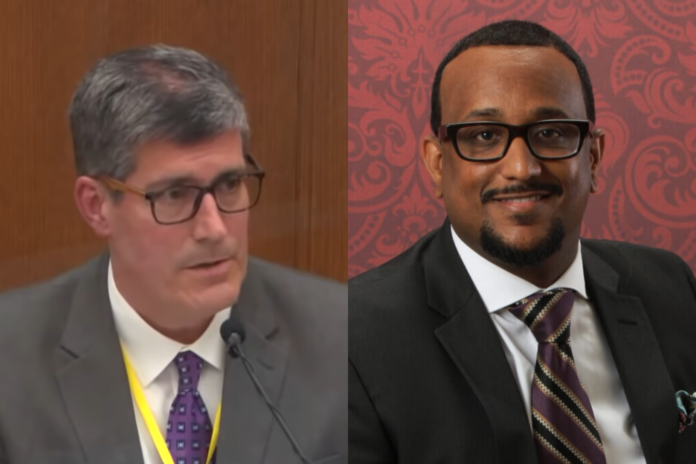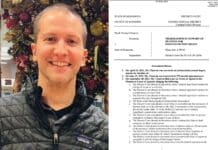Dr. Roger A. Mitchell, the former chief medical examiner of Washington, D.C., allegedly meddled with the outcome of George Floyd’s autopsy, according to a new motion filed with a Minneapolis court.
The motion was presented last week by Tou Thao’s defense team. Thao is a former Minneapolis police officer charged with playing a role in Floyd’s death last year. The official narrative states that Floyd died of asphyxiation, choked to death beneath the knee of former cop Derek Chauvin as Thao and others looked on without intervening. However, the lawyers say that a key medical report in the Floyd case may have been subject to political influence.
The report in question is Hennepin County medical examiner Dr. Andrew Baker’s autopsy of Floyd’s body. Thao’s defense claims that before the results were published, Mitchell threatened to publicly chastise Baker should he not present findings that supported a case against the Minneapolis police officers.
Mitchell allegedly called Baker and leaned on him to conclude that “neck compression” was the cause of Floyd’s death as opposed to the drugs in his system. “In this conversation, Mitchell said, you don’t want to be the medical examiner who tells everyone they didn’t see what they saw … Mitchell said neck compression has to be in the diagnosis,” per the motion.
Baker reportedly replied by saying that “he didn’t think the neck compression played a part,” according to Thao’s defense team.
Mitchell reacted, saying he planned to rail against this finding in a Washington Post op-ed.
This exchange allegedly spanned two phone conversations.
Mitchell’s threat to go to the media may have been effective, as “the final autopsy findings included neck compression,” and the hit piece was never published, Thao’s motion states. “This was contrary to Dr. Baker’s conclusion before speaking with Dr. Mitchell twice,” the defense states.
Notably, Baker’s autopsy didn’t list asphyxiation as a contributing factor in Floyd’s death. Rather, Baker described Floyd’s death as “cardiopulmonary arrest” aggravated by “law enforcement subdual, restraint and neck compression.”
Thao’s defense goes beyond simply noting a grievance. The lawyers accuse Mitchell of coercion and tampering with more than one witness.
Former Maryland chief medical examiner Dr. David Fowler was one of the few medical experts to conclude that Floyd did not die of asphyxiation. Mitchell, upset by Fowler’s opinion, penned an open letter that apparently resulted in an investigation into every Maryland autopsy Fowler ever performed. Thao’s lawyers say “Mitchell unlawfully injured Dr. Fowler’s trade” by doing so.
“Dr. Mitchell has set the stage that he will threaten the trade and professional reputation of any physician who suggests that Mr. Floyd’s death could be labeled as ‘undetermined,'” the lawyers say. “Dr. Mitchell has essentially stated that any medical expert who wants to testify that Mr. Floyd’s death could be undetermined should, and will, face penalties by him,” the motion reads.
According to the defense, this ultimately relates to Thao’s trial because Mitchell’s position “creates a chilling effect for Mr. Thao and violates his due process rights in that it has become extraordinarily difficult to find medical experts who are willing to state that Mr. Floyd’s death was undetermined in fear of their professional reputation and licensure.”
Attorney General Keith Ellison’s office replied to Thao’s motion, calling the “bizarre” allegations “false and wrong.” The state requested a week to file a complete response.











